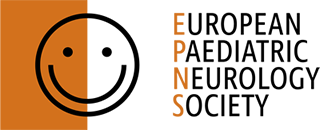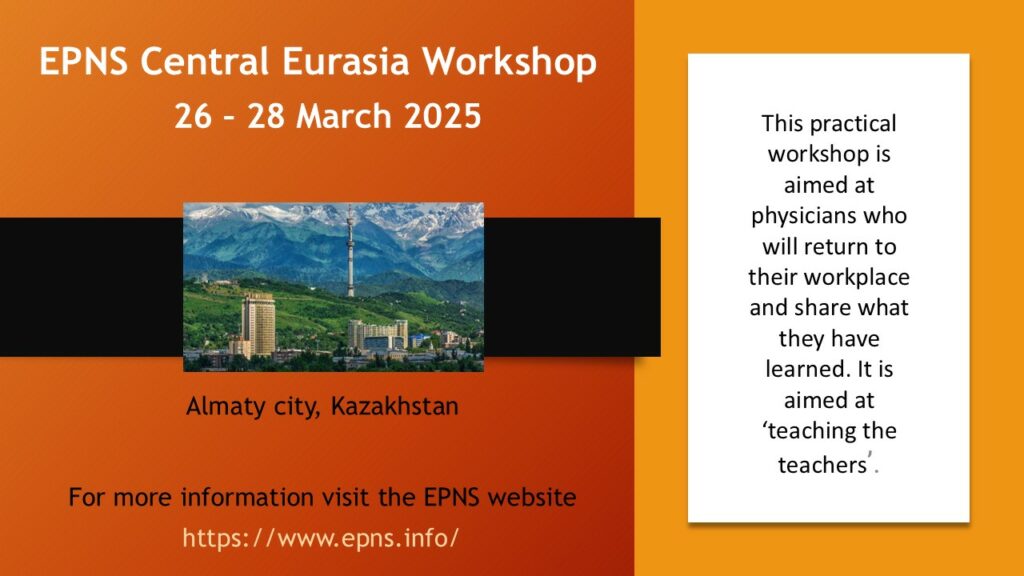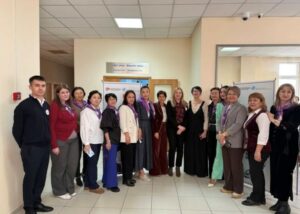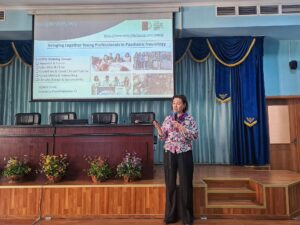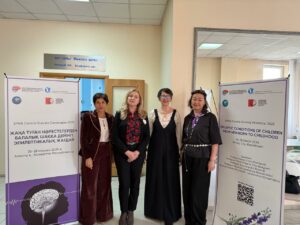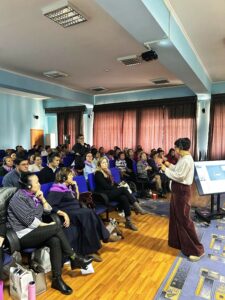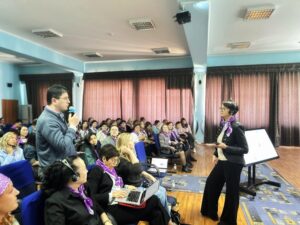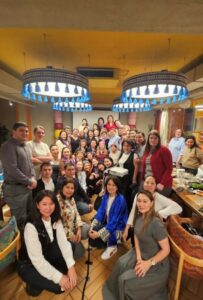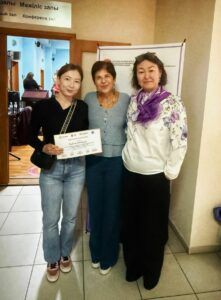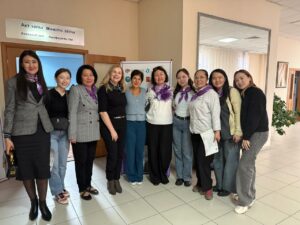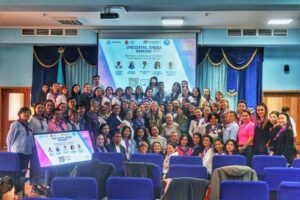Date: Took place 26-28 March 2025
Topic: Epileptic conditions of children from Newborn to childhood
Programme: EPNS Central Eurasia Workshop 2025 PROGRAMME
On the 26th March 2025 The EPNS Central Eurasia Workshop started in Almaty, Kazakhstan focusing on the important topic of “Epileptic Conditions in Children from Newborn to Childhood.” The opening of the event coincided with International Purple Day, a global observance dedicated to raising awareness about epilepsy. The workshop was an important event in the field of pediatric neurology and epileptology. Over the course of three days, participants discussed current issues in the diagnosis and treatment of neurological diseases in children and exchanged experiences with leading specialists from various countries. The workshop was held at the Children’s City Hospital No. 2 in Almaty, Kazakhstan (54 Altynsarina St.). The event brought together leading specialists in epileptology, neurology, and pediatrics, who are sharing their expertise and knowledge.
The seminar program features a wide range of relevant and essential topics, including:
Epilepsy in Kazakhstan: state of the art – presentation by Marzhan Lepessova.
Brain Development – presentation by Altynshash Jaxybayeva.
Epilepsy Classification 2017, 2022, and the Concept of EEG vs.
Developmental Encephalopathy and Epileptic Encephalopathy (EDE) – based on clinical cases, presentation by Dana Craiu .
Neonatal Stroke – Etiology and Outcomes – presentation by Ilona Kopyta.
Classification of Neonatal Seizures – presentation by Roberta Cilio.
After the morning session on day 1, participants enjoyed a coffee break before diving into a practical session on: EEG in Newborns and Clinical Presentation, Differential Diagnosis of Epileptic and Non-Epileptic Events in Newborns, also led by Roberta Cilio.
The workshop also featured discussions of interesting clinical cases related to seizures, with reports and participation from experts such as Gulnara Tortayeva (Astana, Kazakhstan), Olga Grebennikova (Moscow, Russia), Raushan Kenjegulova (Astana, Kazakhstan), Aisulu Tulebayeva, and Dinmukhamed Ayaganov (Aktobe, Kazakhstan).
The second day of the EPNS Central Eurasia Workshop was dedicated to an in-depth study of clinical cases and new approaches in the diagnosis and treatment of epilepsy, with a special focus on the practical application of EEG studies. Two leading experts of the seminar, Dana Craiu and Roberta Cilio, conducted key sessions that became the main events of the day.
Key highlights of the second day:
Practical session: EEG and clinical presentation in the early years of life. Dana Craiu and Roberta Cilio led an intensive practical session where participants studied the relationship between EEG and clinical manifestations of epilepsy in young children. The instructors discussed approaches to the selection of antiepileptic drugs depending on the specifics of the disease, as well as new diagnostic methods using EEG.
Early-onset epilepsy and DEEs. Roberto Cilio gave a detailed overview of early-onset epilepsy and epileptiform activity 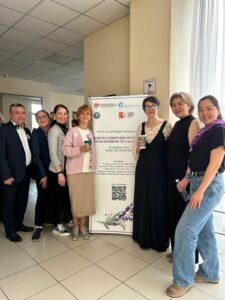 associated with DEEs . A key aspect of the lecture was the emphasis on early diagnosis and an individualized approach to the treatment of patients with this condition.
associated with DEEs . A key aspect of the lecture was the emphasis on early diagnosis and an individualized approach to the treatment of patients with this condition.
Focal epilepsy in children: clinical aspects. Dana Craiu presented clinical data on focal epilepsy in children, including videos of seizures corresponding to lesions in different brain lobes. The instructor highlighted the importance of accurate diagnosis for choosing the correct treatment strategy.
Practical session with EEG and clinical descriptions. During the session conducted by Dana Craiu and Roberta Cilio, participants analyzed several complex clinical cases using EEG data and clinical descriptions, which allowed them to practically and visually reinforce the knowledge gained.
Cases from participants. During the seminar, clinical cases from participants were reviewed, which also became an important part of the learning process, providing participants with the opportunity to discuss real-life situations from practice.
At the end of the day, participants exchanged numerous ideas and impressions during an informal dinner at a restaurant in national style, which helped strengthen professional connections.
On the third day of the seminar, key topics were presented, including:
Pediatric stroke – etiologies and up-to-date management recommendations – presentation by Ilona Kopyta.
Approaches to epilepsy treatment: key principles and when to add or discontinue antiepileptic drugs (AEDs) – Roberta Cilio.
Presurgical assessment (epilepsy surgery principles and cases) – Dana Craiu.
New developments in epilepsy genetics – Roberta Cilio.
Neuroimaging of epilepsy: pattern recognition based on clinical cases – Dana Craiu.
Each topic sparked lively discussions and exchanges. The seminar included workshops that allowed participants to deepen their knowledge and establish professional contacts.
The seminar concluded with a quiz by Yekaterina Trubacheva, where participants tested their knowledge and recalled key moments from the lectures. The format of live interaction helped reinforce the materials from previous days and created an atmosphere of teamwork.
A special moment was the formal awards ceremony for the best clinical cases presented by the participants:
Balnur Serikkyzy (Astana, Kazakhstan) – PNES (Psychogenic Non-Epileptic
Seizures)
Olga Grebennikova (Moscow, Russia) – Case of consecutive seizures in a newborn girl
Ulkar Mursalova (Baku, Azerbaijan) – Epilepsy and psychomotor delay in an 8-year-old girl
These works sparked great interest and became examples of clinical attentiveness, scientific approach, and the pursuit of better treatment outcomes.
During the ceremony, the seminar organizer, Altynshash Jaxybayeva, emphasized the symbolic nature of awarding statuettes in the form of the sun, saying:
“Our speakers are professionals who shine today, and they are now passing this light on to the young stars – specialists who will light the way in the future.”
These words resonated with the participants and became an emotional highlight of the final day.
The third day was not just the conclusion but the culmination of a three-day scientific dialogue. Participants left with not only new knowledge but also a sense of belonging to a strong, united professional community.
We very much look forward to future plans to establish and organize a series of training workshops in all Central Asian counties like those was provided in Kazakhstan.
Information about the Eurasia workshop
Location: City Children’s hospital 2, Almaty City, Kazakhstan (Altynsarina str, 54)
https://g.co/kgs/fUeJSYb
Transport: airport with connection to Europe and all Central Asian countries
Local Organisers: Professor Marzhan Lepessova and Dr Altynshash Jaxybayeva
Local Society: Society of Paediatric Neurologists, neurophysiologists, psychiatrists and psychotherapists https://neuro-site.kz/epns-central-eurasia-workshop/
Faculty: Professor Dana Craiu, Professor Maria Roberta Cilio, Professor Ilona Kopyta, Professor Marzhan Lepessova & Dr. Altynshash Jaxybayeva
Number of participants: Numbers were limited to 100 participants to preserve the interactive nature of the meeting. Registration was on a strictly first come, first served basis.
Who was the training course aimed at? A practical workshop aimed at physicians. We welcomed participants from Kazakhstan, Kyrgyzstan, Uzbekistan, Azerbaijan, Turkmenistan and all other countries.
Registration fee: 200 Euros per person
This included:
- Access to the full programme
- Lunch, coffee and tea during all programmed breaks.
- Simultaneous translation to Russian
- Certificate for attendance
Attendees were responsible for organising and paying for their own transport and hotel accommodation.
- Places were limited and registrations were be taken on a first come first served basis,secured on receipt of full payment.
- All participants had to be members of the EPNS and pay the 2025 EPNS membership fee.
- The EPNS Central Eurasia Workshop 2025 registration form constituted a legally binding agreement. By submitting the registration form, participants accepted the Terms and Conditions of the event.
- Full payment of the course registration fee was to be received before a place at the EPNS Central Eurasia Workshop 2025 is confirmed.
Bursaries
The Kazakhstani Association of paediatric neurologists offered a limited number of bursaries.
Successful bursary candidates were selected by the committee who reviewed the case presentations, and they were reimbursed their full free registration (all other associated costs were to be paid by the successful candidates).
Case Presentations
- Only one case presentation could be submitted per participant.
- The training course faculty decided when and where the case presentations took place.
- The submitted cases specifically related to an item on the published programme.
- All case presentation candidates were notified of the outcome of their submission in March 2025.
Terms and Conditions
EPNS Central Eurasia Workshop 2025 registration form constitutes a legally binding agreement. By submitting a registration form, you are accepting the following terms and conditions: **EPNS Central Eurasia Workshop 2025 TERMS & CONDITIONS
